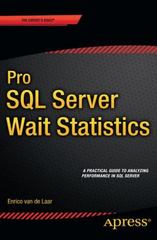Answered step by step
Verified Expert Solution
Question
1 Approved Answer
Consider the procedure put_forks below. Suppose that the variable state[i] was set to THINKING after the two calls to test, rather than before. How would
Consider the procedure "put_forks" below. Suppose that the variable state[i] was set to THINKING after the two calls to test, rather than before. How would this change affect the solution? No code needs to be written; I just need to know how the change of the state would affect the solution.
#define N 5 /* number of philosophers */ #define LEFT (i+N-1)%N /* number of i's left neighbor */ #define RIGHT (i+ 1)%N /* number of i's right neighbor */ #define THINKING 0 /* philosopher is thinking */ #define HUNGRY 1 /* philosopher is trying to get forks */ #define EATING 2 /* philosopher is eating */ typedef int semaphore; /* semaphores are a special kind of int */ int state[N]; /* array to keep track of everyone's state */ semaphore mutex = 1 ; /* mutual exclusion for critical regions */ semaphore s[N]; /* one semaphore per philosopher */ void philosopher(int i) /* i: philosopher number, from 0 to N-1 */ { while (TRUE) { /* repeat forever */ think(); /* philosopher is thinking */ take_ forks(i); /* acquire two forks or block */ eat(); /* yum-yum, spaghetti */ put_ forks(i); /* put both forks back on table */ } } void take_forks(int i) /* i: philosopher number, from 0 to N-1 */ { down(&mutex); /* enter critical region */ state[i] = HUNGRY; /* record fact that philosopher i is hungry */ test(i); /* try to acquire 2 forks */ up(&mutex); /* exit critical region */ down(&s[i]); /* block if forks were not acquired */ } void put_forks(i) /* i: philosopher number, from 0 to N-1 */ { down(&mutex); /* enter critical region */ state[i] =THINKING; /* philosopher has finished eating */ test(LEFT); /* see if left neighbor can now eat */ test( RIGHT); /* see if right neighbor can now eat */ up(&mutex); /* exit critical region */ } void test(i) /* i: philosopher number, from 0 to N-1 */ { if (state[i] ==HUNGRY && state[LEFT] != EATING && state[RIGHT] != EATING) { state[i] = EATING; up(&s[i]); } } Step by Step Solution
There are 3 Steps involved in it
Step: 1

Get Instant Access to Expert-Tailored Solutions
See step-by-step solutions with expert insights and AI powered tools for academic success
Step: 2

Step: 3

Ace Your Homework with AI
Get the answers you need in no time with our AI-driven, step-by-step assistance
Get Started


